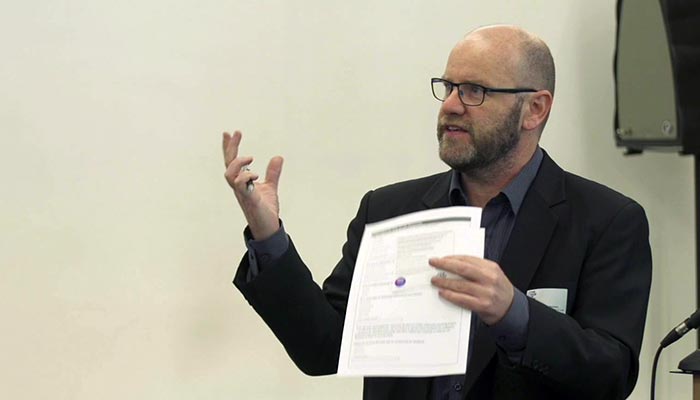[vc_row][vc_column][vc_single_image image=”102719″ img_size=”full” add_caption=”yes”][vc_column_text]
Index on Censorship is deeply concerned about the impacts that the Counter-Terrorism and Border Security Bill would have on academic research and journalism. If the bill becomes law it will limit freedom of expression significantly and discourage investigative journalism and research into terrorism and related issues.
Many parts of the bill give serious cause for concern from a freedom of expression perspective. For example, a proposed new clause would extend existing legislation to criminalise expressions of opinions that are supportive of terrorist organisations if they are made in a “reckless” way which could encourage someone else to support such an organisation. The vague and unclearly defined new offence would go beyond knowingly encouraging support for a terrorist organisation, but would carry a prison sentence of up to 10 years.
When it comes to academic research, the bill would have far-reaching and damaging impacts.
The bill would criminalise viewing of online content that is likely to be useful for terrorism, even if the content was viewed over another person’s shoulder – and no terrorist intent would be required. It could result in a prison sentence of 15 years. It is not clear what exceptions would apply under the proposed clause 3. For example, if a researcher needed to look at a website to research the ideologies of a terrorist organisation, would she be exempted?
Dr Lawrence McNamara, Reader in Law at the University of York and Senior Research Fellow at the Bingham Centre for the Rule of Law, has serious concerns regarding the effect of the proposed new legislation on academic research. According to McNamara, the clause is highly problematic due to its wide scope, lack of clarity and arbitrariness: “A basic requirement of the law is certainty, and it is not clear how the potential scope of this law would be interpreted, and that is deeply troubling. It is unclear how clause 3 – with such a potentially wide scope – would be appropriately related to what might be thought of as counter-terrorism goals.”
For McNamara, an especially troubling element of the bill is its potential effect on academic research, especially as it has implications for research ethics approval, which is a prerequisite for conducting research. Section 58 of the Terrorism Act 2000 already renders it an offence to collect, record or possess information that is likely to be useful for terrorism, but the bill would expand this substantially. McNamara says that academics would therefore be running the “risk that by doing a certain kind of research, you might much more easily find yourself breaching a law. More substantially, it would make it difficult to do research on matters we want to know about. All sorts of difficult issues would arise.”
McNamara highlights that the proposed changes to legislation in the bill would create an obstacle to research because of the level of uncertainty they would create. “It puts an unnecessary obstacle in front of the researcher due to the level of uncertainty. For instance, to comply with research ethics requirements to minimise risk to researchers, academics – either self-censoring or in response to ethics committee concerns – may limit the kinds of materials they choose to look at or even shape the research questions they investigate so that such risks are minimised. This would render it much more difficult for people to conduct research of real value.”
“As to the possibility of an academic researcher being prosecuted, much would depend on the circumstances, but there only needs to be a realistic prospect of conviction in order for a prosecution to be commenced. The public interest arm of the test may not be of great assistance because a prosecution will ordinarily proceed unless the prosecutor is sure that the public interest factors tending against prosecution outweigh those tending in favour,” McNamara explained, “Being ‘sure’ sets quite a significant bar, and in the case of terrorism offences one might expect that it could be difficult for a prosecutor to say they are ‘sure’ of that.” Moreover, the courts have made it clear that whether a person had a reasonable excuse – and thus a defence – is a matter that should be decided by a jury.
The Counter-Terrorism and Border Security Bill is moving forward rapidly in Parliament with the House of Lords now scheduled to consider it in early October. Many are probably unaware of how damaging the bill could be for academic freedom and research – it should not be allowed to slip through.
[/vc_column_text][vc_column_text]Interview by Long Dang[/vc_column_text][/vc_column][/vc_row][vc_row][vc_column][vc_basic_grid post_type=”post” max_items=”12″ style=”load-more” items_per_page=”4″ element_width=”6″ initial_loading_animation=”none” grid_id=”vc_gid:1537173908188-0ca162c8-09db-2″ taxonomies=”27743″][/vc_column][/vc_row]






